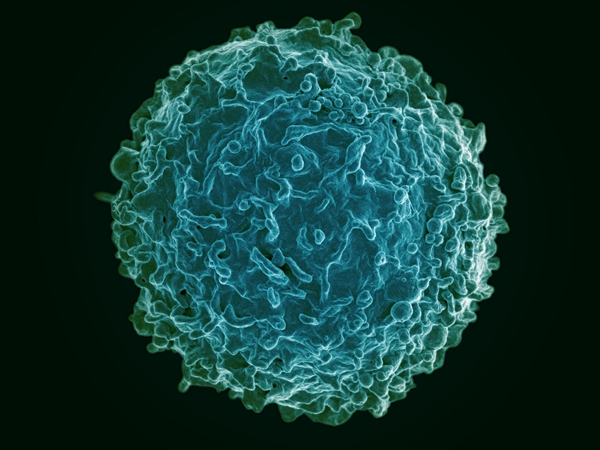25 Mar. 2020. A coalition of business and academic labs is creating a process to quickly identify antibodies in blood samples that neutralize viruses like SARS-CoV-2. The Global Emerging Pathogen Antibody Discovery Consortium, or Gepad, brings together researchers from Vanderbilt and Emory universities, La Jolla Institute for Immunology, and the company Berkeley Lights.
Gepad is developing techniques for detecting individual B-cells, a type of white blood cell in the immune system, with specific anti-viral properties. B-cells respond to infections by transforming into plasma cells that quickly produce antibodies, and thus are key components of a person’s immune system. Moreover, B-cells are also stored in bone marrow, lymph nodes, and the spleen for long periods, and can be called on again should the invading microbe reappear.
As a result, one of the tools being considered for treating Covid-19 is harvesting antibodies to SARS-CoV-2 viruses from B-cells produced by people with these infections for therapies or vaccines. Yesterday, the Food and Drug Administration issued regulatory guidance for requesting an emergency authorization to use convalescent plasma with SARS-CoV-2 antibodies from recovered Covid-19 patients for other patients with severe cases of the disease.
While B-cells can generate large quantities of antibodies, those pathogen fighters are produced to fight only that invading pathogen. In addition, B-cells with the ability to eliminate or neutralize specific pathogens are only a subset of B-cells that bind to invaders. Berkeley Lights says today’s technology can identify B-cells with antibodies that bind to the pathogen, but not necessarily attack it. Further examination, sequencing, and analysis are needed to detect these high-priority B-cells.
Berkeley Lights, in Emeryville, California, develops systems that automate many cell biology workflows. The company says its technologies make it possible to select cells with precise properties, then clone and process thousands of cells with those characteristics simultaneously. Its platform, known as Beacon, uses microfluidic or lab-on-a-chip components that that enable combining cell selection with cell importing, testing, and exporting in a single device.
The Gepad team includes virologists and immunologists James Crowe and Robert Carnahan at Vanderbilt University in Nashville, Erica Ollman Saphire at La Jolla Institute for Immunology in California, and Frances Eun-Hyung Lee at Emory University in Atlanta. The researchers, with colleagues from Berkeley Lights, plan to apply the Beacon system for screening small samples of acute and convalescent plasma from recovering Covid-19 patients for neutralizing B-cells and return results within one day.
“There’s an opportunity here to quickly mobilize something that could protect front-line workers or treat those who have been infected,” says Saphire in a Berkeley Lights statement. “Vaccines aren’t available yet. Providing some immediate immunity using antibodies could be lifesaving for those who haven’t been vaccinated or can’t be vaccinated, or if the eventual vaccines aren’t completely protective.”
The team says the technology can be applied to other pathogens, and could offer a valuable tool for responding to future pandemics from previously unknown viruses. Thus, the researchers put out a call for other collaborators to apply the technology to Covid-19 today and other pathogens in the future.
More from Science & Enterprise:
- Engineered Blood Cells Created for Cancer Therapies
- WHO Beginning Covid-19 Therapy Trial
- Case Study Maps Covid-19 Immune Response
- Lilly, Biotech, NIH to Develop Covid-19 Antibodies
- Engineered Viruses Deployed to Treat Gut Infections
* * *


 RSS - Posts
RSS - Posts
[…] Consortium to Find Neutralizing Viral Antibodies […]